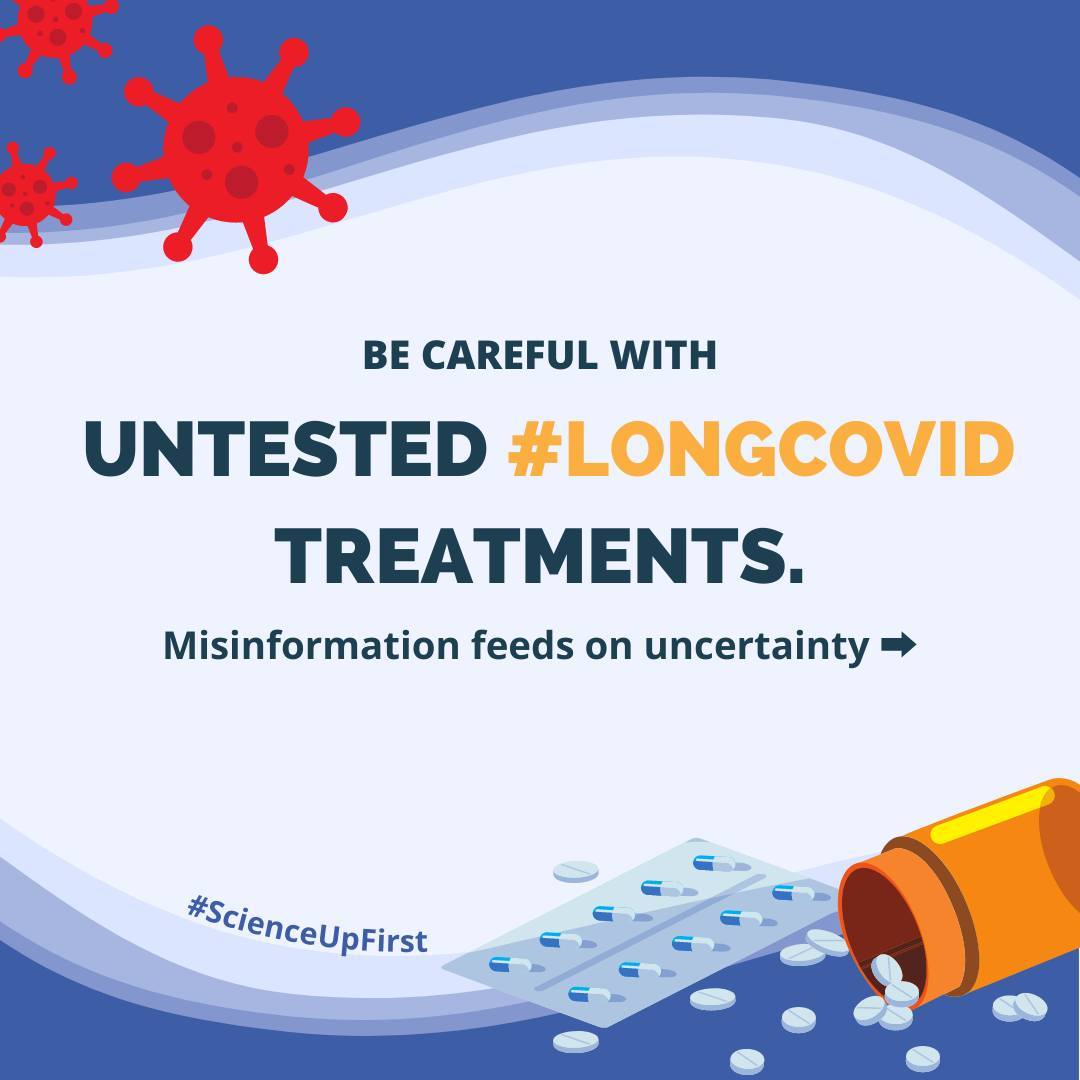Click on the sharing buttons to link to the post in your own tweet, Facebook post, email, or even WhatsApp message.
This post was vetted by experts, so you can be confident it’s accurate.








“If you’ve seen one patient with Long COVID, you’ve seen one patient with Long COVID.”
That’s what one epidemiologist told the New York Times recently.
For #LongCovidAwareness Day, we’re looking at what’s known about treatments.
Long COVID is a really variable condition, with lots of new “treatments” being touted as cure-alls. 🪄💊
As with anything new and uncertain, that leaves a lot of room for misinformation to thrive. So be careful what you share, and be cautious trying new and untested treatments without medical supervision.
There is some nuance here, though. And space for patient advocacy. Let’s face it: the medical establishment hasn’t historically dealt well with chronic conditions like Long COVID.
But now, with millions of sufferers speaking up, Long COVID is a research priority. Treatments are being developed and resources are available. ❤️
Sources: https://tinyurl.com/SUFLongCOVIDDay
Share our original Tweet!
Misinformation feeds on uncertainty.
— ScienceUpFirst | LaScienced'Abord (@ScienceUpFirst) June 9, 2022
So be careful with untested #LongCOVID treatments.
A thread for #LongCOVIDAwareness Day ⬇️#ScienceUpFirst
🧵 [1/11] pic.twitter.com/QMP5Me5LfX
